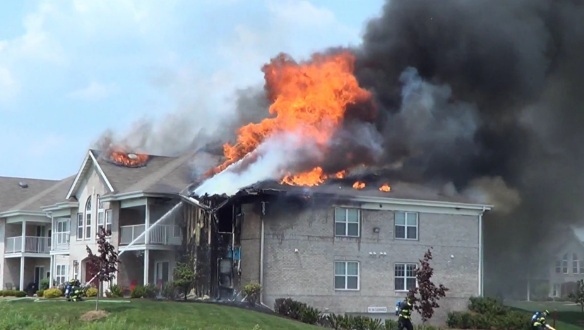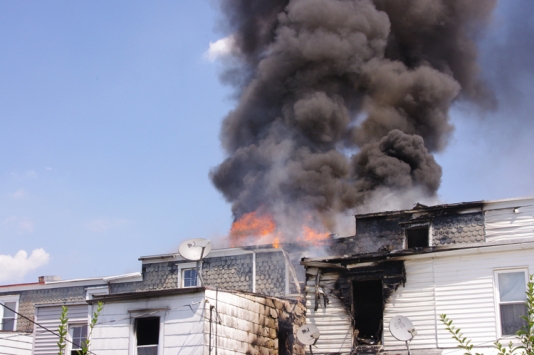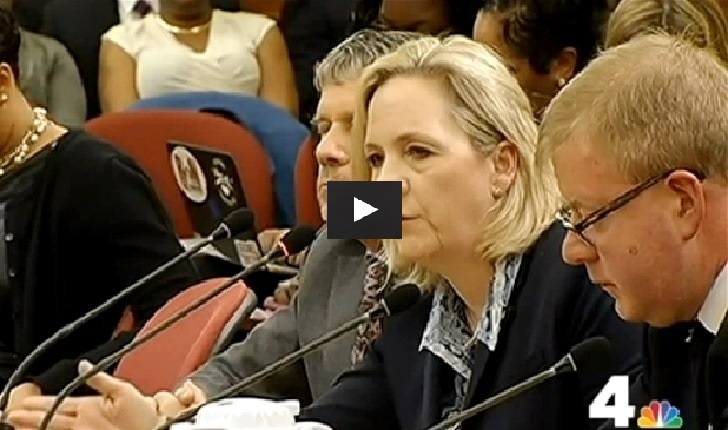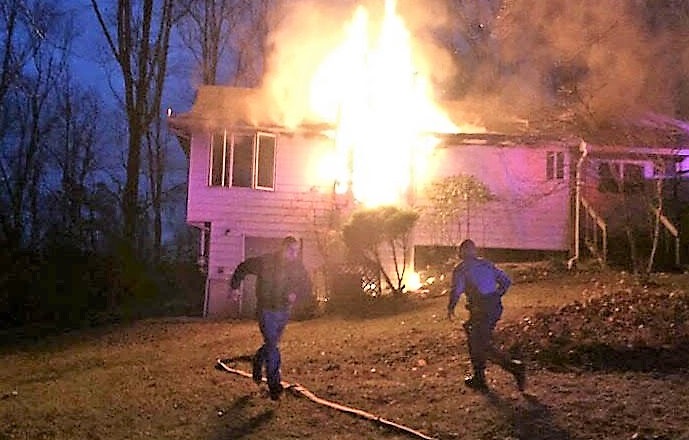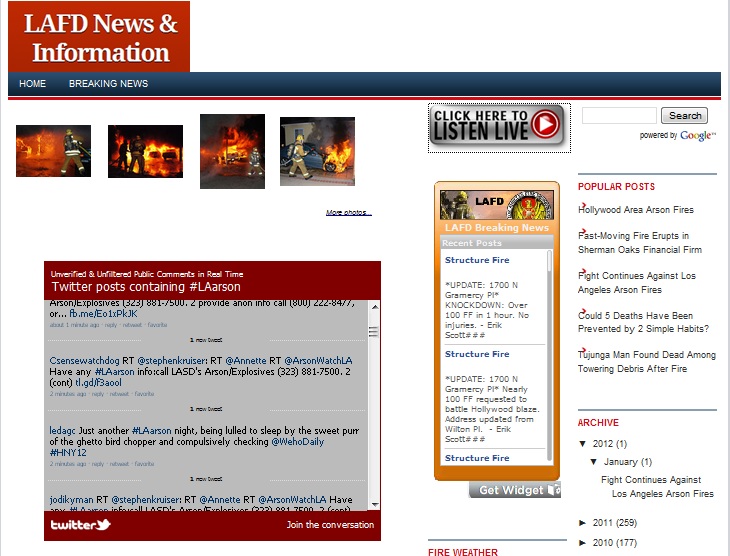UPDATE: When did 'firefighter' become such a bad word? 'Safety personnel' now fight fires in Virginia. Really?
UPDATE: We've had an impact with this post. Leah M. Kosin changed the subhead. It no longer reads "Safety personnel". But despite our less than subtle editing suggestion, Ms. Kosin didn't bite. It now reads "Emergency personnel" and there still is never a mention anywhere in the article that firefighters put out the fire. Oh well.
A month ago I found myself in the middle of a discussion on Ray McCormack's Facebook page after Ray wrote the line "Only you can prevent first responder". I was and am in total agreement (but there were a few non-believers also commenting). I also felt more than just a little guilty for having occasionally given in to this form of government speak. A term the news media picked up on and ran with over the last decade.
I used to quietly fight against it and for a long time avoided using the term on TV and in the blog. Being the weak willed person I am, I eventually just gave up and gave in. But Ray's six words were like General George S. Patton slapping that soldier and they sent me back to the front lines on this issue.
Which brings me to the article above from the Leesburg Patch. Reading this story about a house fire on Ferriers Court in Loudoun County, Virginia last night resulted in screams of "No way!" and "Un#&^$%#?#believable" and "WTF" emanating from the World Headquarters of STATter911.com. The neighbors weren't shocked. They are used to hearing such exclamations. But usually it's from Mrs. STATter911.com. This time it was from me.
The outrage started when I read the subhead of the article, "Safety personnel continue to fight fire … ". So, now it is "safety personnel" who fight fires. Not even "first responders". When was someone out there going to tell me it has been changed again? I guess once I retired from the news business they stopped sending me the memos from Liberal News Media Central (as we all know, the place where every reporter, except those working for Fox News, gets their marching orders).
But wait, there was more to feed my growing disgust. In the entire11 paragraphs it never mentioned that firefighters were the ones extinguishing this house fire. Somehow in an article about a fire, the reporter avoided the word "firefighter". The writer used the word "personnel" and the term "fire teams" (more memos I failed to see), but not one mention of a firefighter being on the scene last night. How does this happen?
Does the word "firefighter" now carry such a negative connotation reporters try to avoid it (maybe that's what happens when idiotic political leaders claim prisoners can do your job)? Is "firefighter" somehow politically incorrect? Do young people not know this word or can't relate to it? Please someone, explain it all to me.
My outrage is not directed at the young reporter who wrote this and yours shouldn't be either (but Leah Kosin, if you happen to see this, please get something out of it other than I am an old, washed-up reporter with a bad attitude). This is just a symptom of the problem Ray McCormack so simply highlighted (and in a hell of a lot fewer words than I am doing). It's an epidemic.
To me, this is an issue about firefighters losing their identity and becoming generic. More important, it's allowing others to take the lead in defining who you are.
Yes, I am very aware firefighters now do so much more now than just fight fires. They respond to "all hazards". I get it.
But they always did things other than just spray water at flames. Even back in the day when they were called firemen.
Do you really think anyone has ever uttered these words: "Oh my dear, the cat is stuck up in the tree. Shall we ring up the first responders to get it down"? I didn't think so. But you may hear that someday soon, if you allow the word "firefighter" to die from disuse.
Firefighters are the can-do people the public relies on when it hits the fan. While it may not describe everything you do, and has certainly taken a beating in recent years (some of it self-inflicted), it's a word the public generally thinks of in a positive way. If you treat this word with respect by not doing the stupid things that will further tarnish its image and stand up and say something when reporters or politicians call you something else, I believe the word will continue to serve you well.



